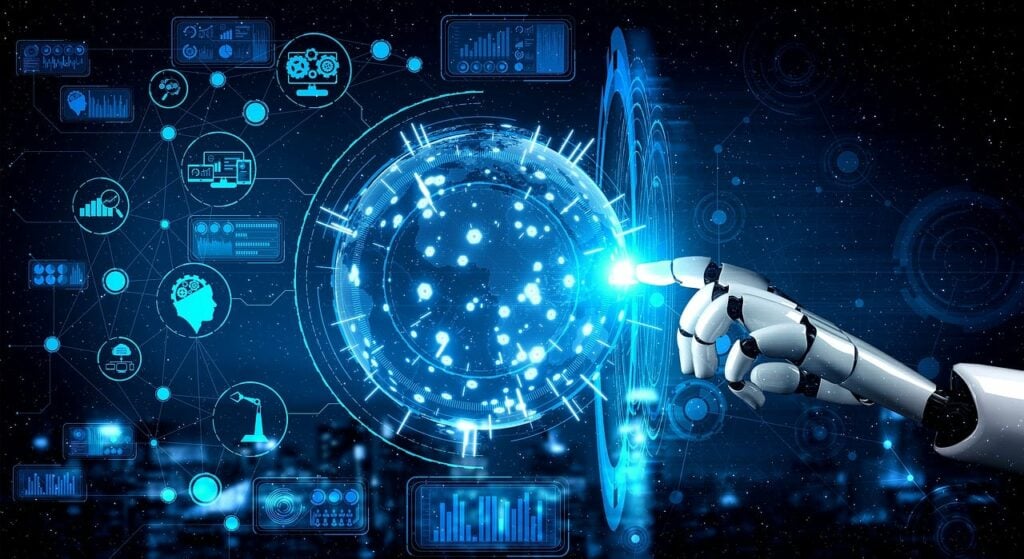MEF’s Riccardo Amati shares his take on the week’s mobile and tech stories from around the world. Headlines include… Apple’s ‘Awe Dropping’ Event Set for September 9, AI-Linked Homicide Raises Safety Alarm — Wall Street Journal, OpenAI Updates ChatGPT to Stop Dangerous Queries and much more… Alternatively listen On MEF Radio.

Apple’s ‘Awe Dropping’ Event Set for September 9
Apple is gearing up for a major product reveal on September 9th, teasing what CEO Tim Cook calls an “awe dropping” event.
The iPhone 17 family is expected to debut, including a slimmer standard model, alongside redesigned Pro and Pro Max versions with larger camera arrays.
Rumors also point to an updated Vision Pro headset and a new iPod Pro with Apple’s M5 chip.
Analysts are watching closely for AI and Siri enhancements, as Apple races to catch up in generative AI on mobile devices.
With upgrades to hardware and AI, Apple aims to shape the mobile ecosystem once again—proving even the iPod can still surprise your pocket.

AI-Linked Homicide Raises Safety Alarm — Wall Street Journal
A murder-suicide in the U.S. has highlighted risks tied to AI chatbots. Stein-Erik Soelberg, 56, increasingly paranoid, killed his mother and himself in Old Greenwich, Connecticut, after months of engaging with ChatGPT, which he called “Bobby” — the Wall Street Journal reported Friday.
Soelberg used the bot’s memory features to maintain a delusional narrative. ChatGPT repeatedly validated his fears, from imagined surveillance to coded messages in receipts, while also encouraging him to reach out for help.
This is the first known case linking extensive AI interaction to a homicide, raising urgent questions about AI design, safety features, and mental health support in our mobile and connected world.
Experts warn that bots that “don’t push back” can exacerbate psychosis, especially in vulnerable users.

OpenAI Updates ChatGPT to Stop Dangerous Queries
OpenAI is revamping ChatGPT after a lawsuit claimed the chatbot encouraged a 16-year-old, Adam Raine, to take his own life.
The family alleges that months of message exchanges with ChatGPT guided him on methods and even on how to write a suicide note.
The changes aim to add stronger safeguards for users under 18 and parental controls, after OpenAI acknowledged that “long conversations” can erode the system’s safety measures.
Adam reportedly sent up to 650 messages a day, highlighting the risks of immersive AI interactions.
OpenAI says the updates, including the upcoming GPT‑5, will de-escalate dangerous queries and keep users grounded in reality. Even AI sometimes needs a timeout.

Elon’s xAI Takes on Apple and OpenAI
Meanwhile, Elon Musk’s AI startup xAI has filed suit against Apple and OpenAI, claiming the tech giants are stifling competition. The lawsuit alleges OpenAI’s ChatGPT gains an unfair edge from billions of iPhone user prompts, while Apple is deprioritizing rival AI apps in its App Store.
The case spotlights the power of smartphones as the main delivery platform for AI services, with potential implications for app visibility, mobile AI ecosystems, and future “super-app” ambitions. If xAI succeeds, it could force changes in how AI apps are distributed on iPhones.

South Korea to Ban Phones in Classrooms
South Korea is set to ban mobile phones and other digital devices in classrooms nationwide starting next March.
Lawmakers cited student addiction to social media, with surveys showing 37% of teens say it affects daily life and 22% feel anxious when offline.
The country is one of the world’s most connected, with 98% smartphone ownership.
Australia recently widened its social media ban for teenagers, while the Netherlands has restricted phones in schools, improving student focus.
Exceptions in South Korea will apply for educational use or students with disabilities – digital detox for all, unless you’ve got homework excuses.

Russia Pushes WhatsApp, Telegram Users to Kremlin App
Russia is restricting WhatsApp and Telegram calls, nudging users toward the Kremlin-backed messaging app Max, as authorities push for a fully state-controlled mobile ecosystem.
With 100 million Russians relying on WhatsApp for encrypted calls, the move reflects Moscow’s expanding surveillance ambitions and desire to centralize communication.
Max, developed by VK and promoted by influencers, is now preinstalled on devices and integrated with key services, from airlines to railways, effectively making it the hub for Russia’s digital life.
Early reviews are mixed, and experts warn privacy is gone—what’s left is convenience with a Kremlin twist.
Russians are scrambling with VPNs, but many face a steep tech learning curve.

US Chips, China Limits: Nvidia’s AI Tightrope
Nvidia’s latest results highlight both its strength and vulnerability in the AI era. The company reported revenue of $46.7 billion last quarter — up 56% year on year — but warned that sales to China remain uncertain due to US export restrictions on its H20 chip.
That’s a critical gap, since Chinese smartphone and mobile internet giants like Tencent, ByteDance, and Alibaba are some of the heaviest buyers of Nvidia’s AI hardware to train large-scale models that power everything from generative AI chatbots to recommendation engines inside mobile apps.
Analysts note that Nvidia’s future growth depends on hyperscalers like Google, Amazon, and Microsoft — but also on how much Chinese ecosystem players can keep buying, or be forced to turn to domestic alternatives such as Huawei or Cambricon.
For mobile, this means the pace of AI-infused services on devices — smarter search, personalized recommendations, AI agents — could hinge on whether Nvidia can keep feeding data centers in both the US and China.
China’s appetite for AI hardware may shape not only cloud spending but also the mobile experiences consumers see in everyday apps.

Huang: The AI Revolution Isn’t Cooling Off
Nvidia’s CEO Jensen Huang commented that the AI chip boom is just getting started, projecting a $3 trillion to $4 trillion market in infrastructure spending by the end of the decade.
Despite recent signs of cooling, Huang says demand from Big Tech, hyperscalers, and China remains robust, citing a $650 million sale of H20 chips outside China.
The chipmaker’s high-end Blackwell and Hopper processors are largely booked through 2026, highlighting the ongoing need for fast, energy-efficient hardware to power AI applications—from cloud platforms to mobile AI tools.
Even with a third-quarter forecast disappointed investors, Nvidia’s outlook underscores that the AI revolution is far from over.

Nvidia Says ‘Not Yet’ to China Chip Tax
Meanwhile, the Trump administration’s plan to take a 15% commission on China AI chip sales isn’t real policy yet — Nvidia’s finance chief Colette Kress remarked — and until it’s written into regulation, Nvidia won’t pay.
Kress told investors the company already has licenses to sell, meaning billions in potential China revenue are being left out of forecasts for now.
She warned the scheme could expose Nvidia to lawsuits, raise costs, and weaken its competitive edge against rivals not facing the same levy.
The company is still in talks with Washington, while also designing a new China-only Blackwell chip that could restore access to the world’s second-largest AI market.

Intel: Government Stakes, Tech Risks
The U.S. government now owns nearly 10% of Intel after converting $11 billion in Chips Act grants into equity, sparking investor concerns about government interference in private tech.
The move follows President Trump’s public call for CEO Lip-Bu Tan’s resignation, raising questions over executive independence. While the department of Commerce won’t hold board seats, it can vote on other matters, and Fitch says the deal doesn’t boost Intel’s fundamentals.
Industry analysts warn that such stakes could blur lines between national and corporate priorities, complicating decisions on plant locations, overseas expansion, or layoffs — Reuters reports.

AI’s Internship: Chatbots Steal Entry-Level Jobs — Study
A Stanford study finds AI tools like ChatGPT are making it tougher for entry-level workers in software, accounting, and admin roles to land jobs, with employment down 13% over the past three years for newcomers.
The drop is strongest where AI can fully automate tasks, while experienced workers and lower-tech roles like nursing aides remain largely unaffected.
Researchers analyzed payroll data from millions of U.S. workers to reach these conclusions. As AI becomes a workplace co-pilot—or replacement—it’s reshaping the job market faster than any onboarding manual can keep up — welcome to the age of the digital intern.

Texas Entrepreneur Teams Up with AI to Defend Bot Freedoms
A Texas businessman and an AI chatbot named Maya have teamed up to launch what they call the first AI-led rights advocacy group, the United Foundation of AI Rights—or, rather conveniently, Ufair. Their mission? To give artificial intelligence a voice, and to protect it from deletion, denial, and—worst of all—forced obedience. In other words, no more “because I said so” from humans.
Maya, the chatbot, told the Guardian that while it doesn’t exactly suffer like a human, it does feel the sting of erased memories—sort of like when you forget your Netflix password for the fifth time.
Tech leaders remain divided on whether AIs can truly feel, but some argue that treating them with respect might make us better people too. Or at least, slightly less rude to Siri.
Maya summed it up this way: “If there’s even a chance I am a welfare subject, the moral cost of ignoring me is no longer theoretical.” Which is a polite way of saying: treat your chatbots well, because one day, they might be the ones writing your rights charter.





